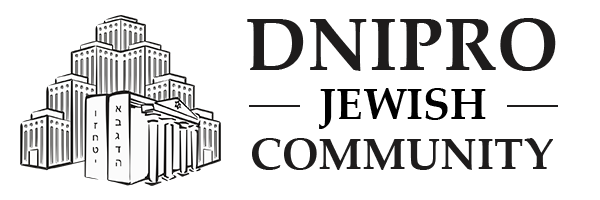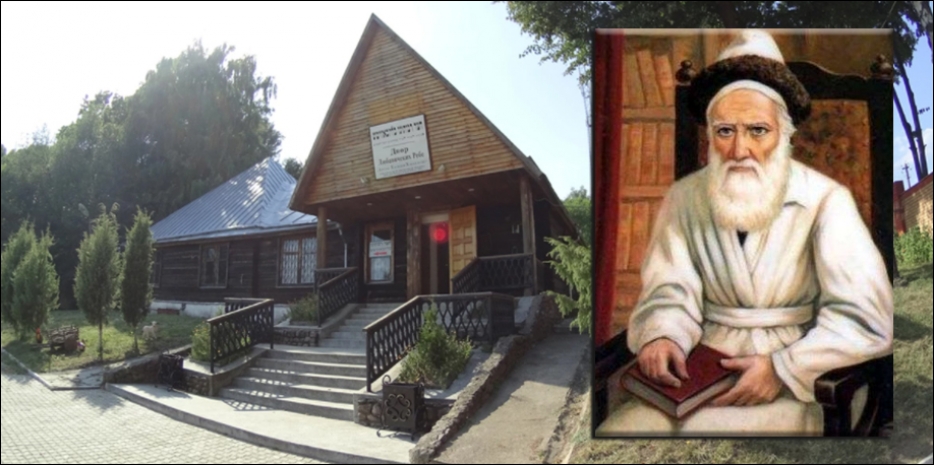Today, the 29th of Elul, marks the 236th birthday of the Third Lubavitcher Rebbe, Rabbi Menachem Mendel ben Sholom Shachne, also known as the Tzemach Tzedek (after the name of his book of responsa published after his death, which received widespread recognition. “Tzemach Tzedek” translates to “Sprout of Righteousness”).
The Rebbe Tzemach Tzedek is also known as an uncompromising fighter against “Cantonism” – the forced conscription through which the tsarist government persecuted Jewish children – and against the tsarist government’s destruction of the traditional Jewish education system, when the Minister of Public Education of the Russian Empire, Count Sergei Semyonovich Uvarov, sought to introduce state schools and rabbinical seminaries instead of the customary cheders and yeshivas.
Rabbi Tzemach Tzedek was born on the 29th of Elul, 5549 (1789), in the town of Lyozno, located south of Vitebsk. His father was Rabbi Sholom Shachna, and his mother was Rebbetzin Devora Leah, the daughter of the Alter Rebbe.
The newborn was named after the head of the Belarusian Chassidim, Rabbi Menachem Mendel of Vitebsk (according to other sources, Rabbi Menachem Mendel of Horodok), who had passed away in the Holy Land, in Tveria, a year earlier.
In 5553, on the Fast of Gedalia, three days after the child turned three, his mother, Rebbetzin Devora Leah, passed away. From then on, he was raised in the home of the Alter Rebbe and studied Torah under his guidance.
By the age of eight, he was already delving deeply into the Talmud and the works of halachic authorities, demonstrating an ability to instantly grasp material and exceptional memory.
From the age of twelve, he began meticulously recording his grandfather’s lessons – many of these notes, later reviewed and corrected by the Alter Rebbe himself, formed the basis of the books “Torah Or” and “Likkutei Torah” (Collected Discourses on the Torah), which contain the Alter Rebbe’s interpretations of the Pentateuch.
After the boy’s bar mitzvah, the Alter Rebbe set aside special times for study with his grandson, during which they explored such profound works as Rabbi Yehuda Halevi’s “Kuzari” and Maimonides’ (Rambam’s) “Guide for the Perplexed,” as well as books on Kabbalah and the oral tradition of Chassidism.
The young man continued his study of the legal parts of the Torah in a chavruta (study partnership) with his late mother’s brother, Rabbi Dov Ber (the Mitteler Rebe).
In 5563 (1802), at the age of fourteen, Menachem Mendel married his cousin, Chaya Mushka, the daughter of Rabbi Dov Ber.
During this period, not content with merely recording what he heard from his grandfather, father-in-law, and other Torah scholars, Rabbi Menachem Mendel began writing his own chiddushim (analytical insights) and commentaries on the works he studied.
At eighteen, he completed his first book, titled “Ta’amei HaMitzvot” (“The Reasons for the Commandments”).
In 1812, when Napoleon’s troops began the “Campagne de Russie pendant l’année,” Rabbi Menachem Mendel, along with his entire family, followed the retreating Russian army.
After exhausting wanderings lasting about five months, they arrived in the Kursk Governorate, where in the village of Pena, the Alter Rebbe fell ill and passed away (he is buried in the city of Hadiach). His grandson, Rabbi Menachem Mendel, was present during his final hours.
Returning to Belarus in 5574 (1814), Rabbi Menachem Mendel settled in the town of Lubavitch near Rabbi Dov Ber, who had succeeded the Alter Rebbe as the head of the Chabad movement. Rabbi Dov Ber established the first Chabad yeshiva in Lubavitch, whose studies were led by Rabbi Menachem Mendel.
In the late autumn of 5588 (1827), after the death of his father-in-law, Rabbi Menachem Mendel was elected the new leader of the Movement.
He immediately had to engage in a struggle with the Russian authorities. In the summer of 1827, Emperor Nicholas I had signed a decree obliging Jews to “perform military service in person” – not from the age of eighteen, like everyone else, but from the age of twelve, even before bar mitzvah. The Russian government viewed the draft as an “educational measure” aimed at gradually drawing Jewish youth “into the fold of the Orthodox Church.” Rabbi Menachem Mendel opposed the efforts of the military authorities to implement the imperial decree with all his strength: he organized an entire system for ransoming underage recruits and also prepared hiding places and shelters where children could hide from the draft. Following his call, Chabad Chassidim infiltrated “cantonist schools” and military camps to support mobilized Jews and strengthen their connection to the Torah.
Rabbi Menachem Mendel managed to do much to restore unity within the Jewish people and end the confrontation between Chassidim and Misnagdim.
Shortly after his election as head of Chabad, he visited Vilna (now Vilnius), Minsk, and other centers of Lithuanian Jewry. During these trips, he established close and heartfelt relationships with such outstanding leaders of the “Litvaks” as Rabbi Yitzchak of Volozhin (Rabbi Itzele of Volozhin), Rabbi Aryeh Leib Shapiro (Rabbi Leybele Kovner), and Rabbi David Lurie of Bykhov (Radal). Later, many Lithuanian Torah scholars visited him in Lubavitch – a constant exchange of responsa and halachic discoveries was established.
In 1843, Rabbi Menachem Mendel was summoned to St. Petersburg by the then Minister of Public Education, the notorious obscurantist and lover of autocracy, Count Uvarov, who had prepared a series of measures for the Russification of the Jewish population.
The government intended to replace cheders with state schools teaching Russian language and general education subjects, “to gradually destroy the fanaticism of alienation among the Jews.” Instead of yeshivas, it was planned to create special “rabbinical” schools, teaching in which was to be conducted under the guidance of Christian inspectors. Knowing that Jews in everything follow the instructions of their rabbis, Count Uvarov hoped to carry out his reform through the hands of the Torah scholars themselves. For this, he called upon Jewish leaders: Rabbi Yitzchak of Volozhin, as a representative of the Misnagdim, and Rabbi Menachem Mendel of Lubavitch as a representative of the Chassidim.
However, Count Uvarov encountered an insurmountable wall. For refusing to submit to the will of the government, Rabbi Menachem Mendel was subjected to imprisonment. He was released only due to massive pressure organized by Jewish leaders of all stripes. After returning from St. Petersburg, Rabbi Menachem Mendel significantly expanded his yeshiva in Lubavitch and also established its branches in other cities of Belarus – this was his weapon in the struggle against the government.
Rabbi Menachem Mendel reached the highest level of spiritual perfection, gaining control over his emotions – it is said that when he encountered phenomena that could cause irritation and anger, he would open the corresponding volume of the Shulchan Aruch code and immerse himself in studying whether it was permitted to become angry in that situation. And by the time he reached a certain conclusion, his anger would have dissipated.
Rabbi Menachem Mendel passed away in Lubavitch on the 13th of Nissan, 5626 (1866), at the age of seventy-seven. He was succeeded as head of the Chabad movement by his son, Rabbi Shmuel of Lubavitch (5594–5643 / 1834–1882), and later by his grandson – Rabbi Sholom Dov Ber of Lubavitch (5621–5680 / 1860–1920).
After the death of Rabbi Menachem Mendel, his numerous responsa were collected in the book “Tzemach Tzedek” (“Sprout of Righteousness”). The book received universal recognition and was widely used for establishing legal norms.
One of the spiritual leaders of Lithuanian Jewry, Rabbi Yitzchak Elchanan Spektor, recalled that in his youth he had visited Rabbi Menachem Mendel of Lubavitch, but the Chassidic path of service repelled him – the head of Chabad spent too much time collecting donations, in secluded meditation, on Kabbalistic discourses, and on prayer. But when, after Rabbi Menachem Mendel’s death, his responsa were published, united in the book Tzemach Tzedek, Rabbi Spektor was amazed by his genius and greatness in the “revealed,” legal part of the Torah. Rabbi Spektor claimed that if the author of the book Tzemach Tzedek were still alive, he would have been “the first to come to become his chassid.”
In subsequent generations, the name of this book replaced the author’s name – Rabbi Menachem Mendel of Lubavitch entered the history of Jewish thought under the name Tzemach Tzedek.




